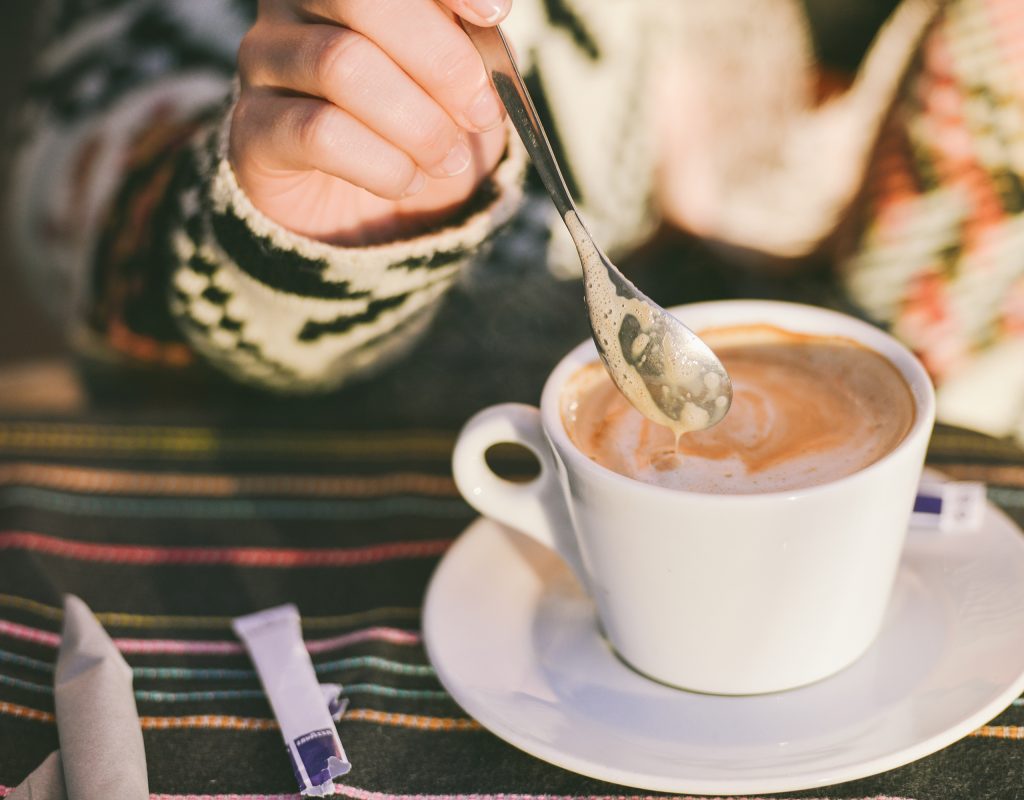
Articles
The Secret to a Happy Holiday: Create a Plan to Reduce Stress and Improve Sleep
There’s a reason you’re seeing more stories about the ways holiday stress impacts your health. While stress about COVID-19 has…
Introducing SleepScore
We deliver accurate data, actionable insights, personalized coaching and proven outcomes your customers need.
Sleep Insights
Last Published on 30th October 2017 by SleepScore Labs

Caffeine is so prevalent in today’s standard of fast-paced life. We all enjoy the bursts of energy it gives us on a long day, but just how much caffeine should we be consuming every day? In this article, we’ll discuss how caffeine interacts with sleep, what caffeine limits you should put into place, and a few everyday items that contain notable caffeine amounts.
Did you know that the caffeine in your morning coffee, tea or energy drink hits your bloodstream in less than an hour’s time? What’s even more surprising is caffeine’s half-life; it stays in your bloodstream for up to six hours. Since it’s a stimulant, caffeine affects the way our sleep-wake cycle operates and causes enough problems with sleep that it’s worth knowing how much caffeine to drink and when to drink it for optimal nightly rest.
While caffeine in moderation is fine, any more than 4 cups of coffee per day can cause health issues ranging from minor to serious. These side effects include migraines, insomnia, nervousness, irritability, restlessness, upset stomach, fast heartbeat, and muscle tremors. Another obvious effect of caffeine is not getting enough sleep. The Mayo Clinic notes that “using caffeine to mask sleep deprivation can create an unwelcome cycle.”
High caffeine intake translates to regular struggles with falling asleep and staying asleep. Caffeine can hinder you from entering deep sleep, which is critical for your physical and mental health. A study published in Science Translational Medicine found that “caffeine delayed subjects internal clock by 40 minutes, a shift about half as long as bright light, a stimulus known to robustly lengthen the circadian phase.” With all of this information in mind, we can see how important it is to stay educated on caffeine consumption.
The experts at the Mayo Clinic recommend no more than 400mg of caffeine per day for healthy adults. That translates to 4 cups of coffee or 10 cans of soda. If you’re outside of that range, consider scaling back your intake to improve your sleep quality and steer clear of health concerns related to over-caffeinating.
Another important element to consider is the time of day when you’re consuming caffeine. The best hours to drink caffeinated beverages are between wakeup and 2 PM. Anything after that time frame puts you at risk for sleep disruption.
Most food and drinks do not list the amount of caffeine in a single serving, so we’ve compiled a list of averages of the most common drinks with caffeine and a few surprising items with varied caffeine levels.
An 8 oz. cup of brewed coffee has between 95-165 mg of caffeine. The key here is to look at the “roast.” A light roast has more caffeine, while the “stronger” dark roast (such as a French roast) has less. If you’re an espresso drinker, your caffeine intake per one ounce serving is going to be anywhere from 47-64mg.
An 8 oz. cup of brewed tea will have less caffeine than your average cup of coffee.Black tea averages 25-48 mg per serving, and green tea has around 25-29mg. The average bottled iced tea beverage will have anywhere from five to 40 mg.
Soft drinks or “sodas” contain a lot of sugar and caffeine. They are full of stimulants and hollow calories and are generally best when avoided. Traditional flavors such as cola and orange contain between 24 and 46 mg of caffeine per 8oz serving.
Though health experts are still on the fence about energy drinks, if you use them for a boost, you can expect anywhere from 27 to 164mg of caffeine in an 8oz serving. The small energy “shots,” weighing in around one ounce, include 40 to 100mg.
Caffeine can also be found in some unexpected places too. Chocolate, for instance, contains approximately 45mg of caffeine per 1.5oz serving. Several different pain medications, supplements, sports waters, and protein bars even contain various amounts!
It can be tricky to think about all of the sources and amounts of caffeine in your daily diet, but it’s a crucial step to reaching better sleep health. If you’re not ready to eliminate it from your life, be sure to take steps to consume safe amounts at appropriate hours of the day. The two key tips to remember are to limit your intake to 300mg per day and to cease all caffeine consumption after 2 PM. There’s still hope for those of us who love our morning coffee, so long as you stick to these guidelines.